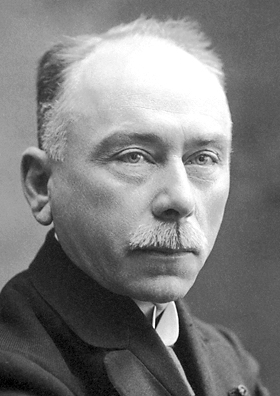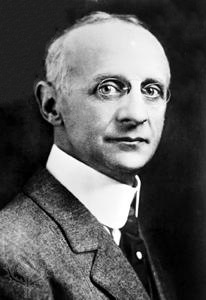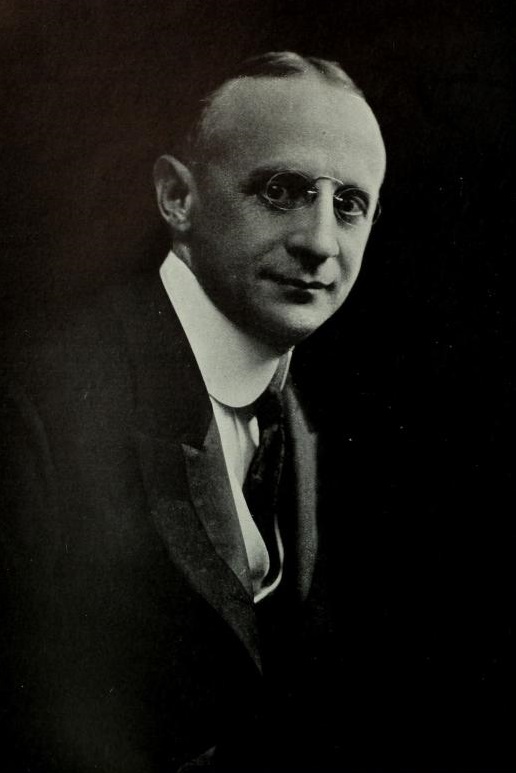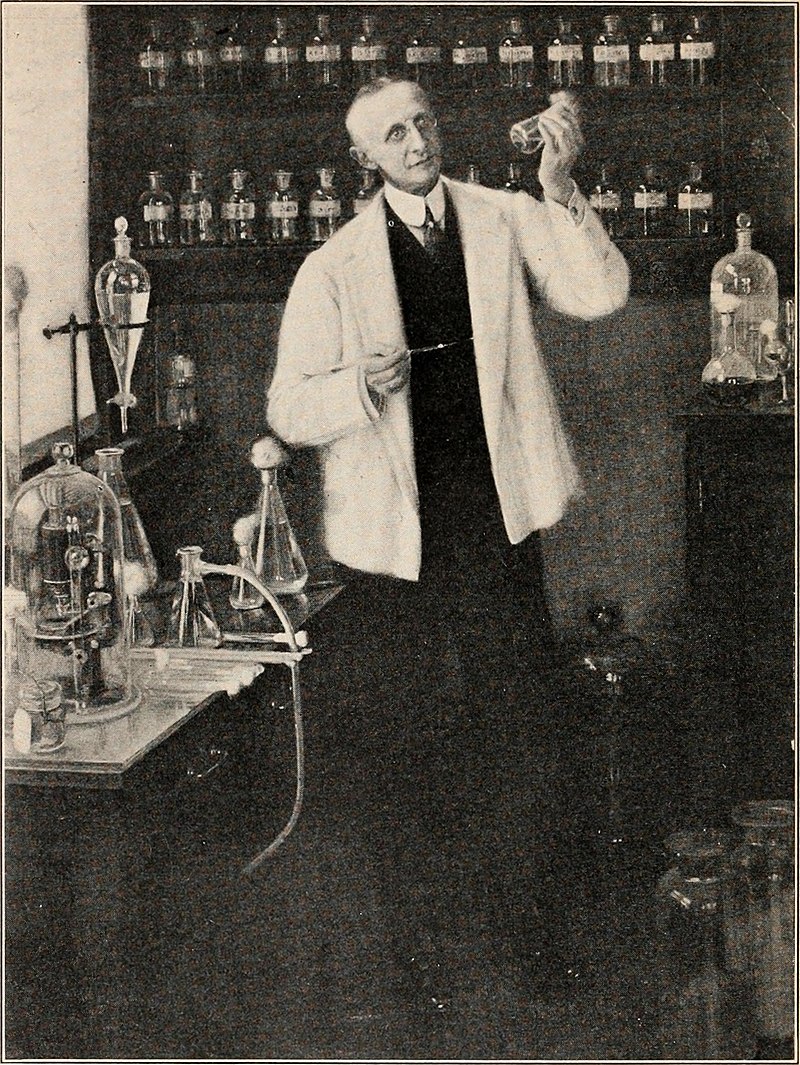<Back to Index>
- Immunologist and Microbiologist Jules Jean Baptiste Vincent Bordet, 1870
- Physician Simon Flexner, 1863
PAGE SPONSOR

Jules Jean Baptiste Vincent Bordet (13 June 1870 - 6 April 1961) was a Belgian immunologist and microbiologist. The bacterial genus Bordetella is named after him.
Bordet was born at Soignies, Belgium. He graduated in the year 1892 as Doctor of Medicine at the Université Libre de Bruxelles (Brussels, Belgium) and began his work at the Pasteur Institute in Paris in 1894, where, in the laboratory of Elie Metchnikoff, he described phagocytosis of bacteria by white blood cells. In 1898 he described hemolysis evoked by exposure of blood serum to foreign blood cells.
In 1900, he left Paris to found the Pasteur Institute in Brussels, and made his discovery that the bacteriolytic effect of acquired specific antibody is significantly enhanced in vivo by the presence of innate serum components which he termed alexine (but which are now known as complement). This mechanism became the basis for complement - fixation testing methods that enabled the development of serological tests for syphilis (specifically, the development of the Wassermann test by August von Wassermann). The same technique is used today in serologic testing for countless other diseases.
With Octave Gengou he isolated Bordetella pertussis in pure culture in 1906 and posited it as the cause of whooping cough. He became Professor of Bacteriology at the Université Libre de Bruxelles in 1907.
In March 1916 he was elected a Fellow of the Royal Society and in 1930 delivered their Croonian Lecture. In this lecture Bordet also concluded that bacteriophages "the invisible virus of Felix d'Herelle", a self taught microbiologist, did not exist and that it was bacteria themselves which produce the lytic principle. He was to be proven incorrect later with Bacteriophage therapy then (and just recently) recognized as an alternative / complementary therapy in the fight against bacterial infections. The Nobel Prize in Physiology or Medicine was awarded to him in 1919 for his discoveries relating to immunity.
Bordet died in 1961 and was interred in the Ixelles Cemetery in Brussels. He was a freemason and member of the lodge Les Amis Philanthropes of the Grand Orient of Belgium in Brussels.



Simon Flexner (March 25, 1863 - May 2, 1946) was a physician, scientist, administrator, and professor of experimental pathology at the University of Pennsylvania (1899 - 1903). He served as the first director of the Rockefeller Institute for Medical Research (1901 - 1935) (later developed as Rockefeller University) and a trustee of the Rockefeller Foundation. He was also a friend and adviser to John D. Rockefeller Jr.
Among Flexner's most important achievements are studies into poliomyelitis and the development of serum treatment for meningitis. Among his lab assistants were Hideyo Noguchi and Cornelius Rhoads, later directors of Memorial Hospital and the Sloan-Kettering Institute, respectively.
The bacteria species Shigella flexneri was named
in recognition of Flexner. In addition, Flexner was the
first to describe Flexner -
Wintersteiner rosettes, a characteristic finding
in retinoblastoma, a type of cancer.
Simon was born in Louisville, Kentucky, to Moritz (Morris) Flexner, a Jewish immigrant from Neumark, Bohemia, via several years in Strasbourg, France; and Ester from Roden, Germany. He was the fourth son of seven in a large family of nine children: Jacob, Henry, and Isadore; then Simon, followed by Bernard Flexner, Abraham Flexner, and Washington. The two sisters Mary and Gertrude were the youngest. Jacob became a pharmacist and physician, Bernard became a Zionist leader, and Abraham became an educator, eventually influencing the direction of medical education in the United States.
Simon first gained a degree from the Louisville College of Pharmacy
and worked with his brother Jacob for eight years.
He returned to college, getting his medical degree from Louisville Medical College in 1889. He did postgraduate work in pathology at Johns Hopkins University Medical School, and started teaching there. By 1899, he was a professor of pathology at the University of Pennsylvania.
Flexner was elected to the American Philosophical Society in 1901.
He taught at Penn until 1903, but was called to the Rockefeller Institute for Medical Research (later Rockefeller University), where he started serving as its first director in 1901. He managed the research institute until 1935. Through this affiliation and related work, he came to know the philanthropist John D. Rockefeller, who supported research and basic medical care.
In December 1907 Flexner declared in a reading of his paper on "Tendencies in Pathology" in the University of Chicago that it would be possible in the then-future for diseased human organs substitution for healthy ones by surgery — including arteries, stomach, kidneys and heart. These previsions became reality in the second half of the 20th century.
In 1911, Flexner was awarded the Cameron Prize for Therapeutics of the University of Edinburgh.
From 1910 to 1914 he was a trustee of the Carnegie Institution.
Simon Flexner married Helen Thomas (later professor of English) and had a family. His son James Thomas Flexner became a prolific writer; one of his works was an extensive biography of George Washington.
Simon Flexner died in May 1946 in New York City, from a myocardial infarction (heart attack). He was 83 years old. His papers are currently housed at the American Philosophical Society and the Becker Medical Library at the Washington University School of Medicine.